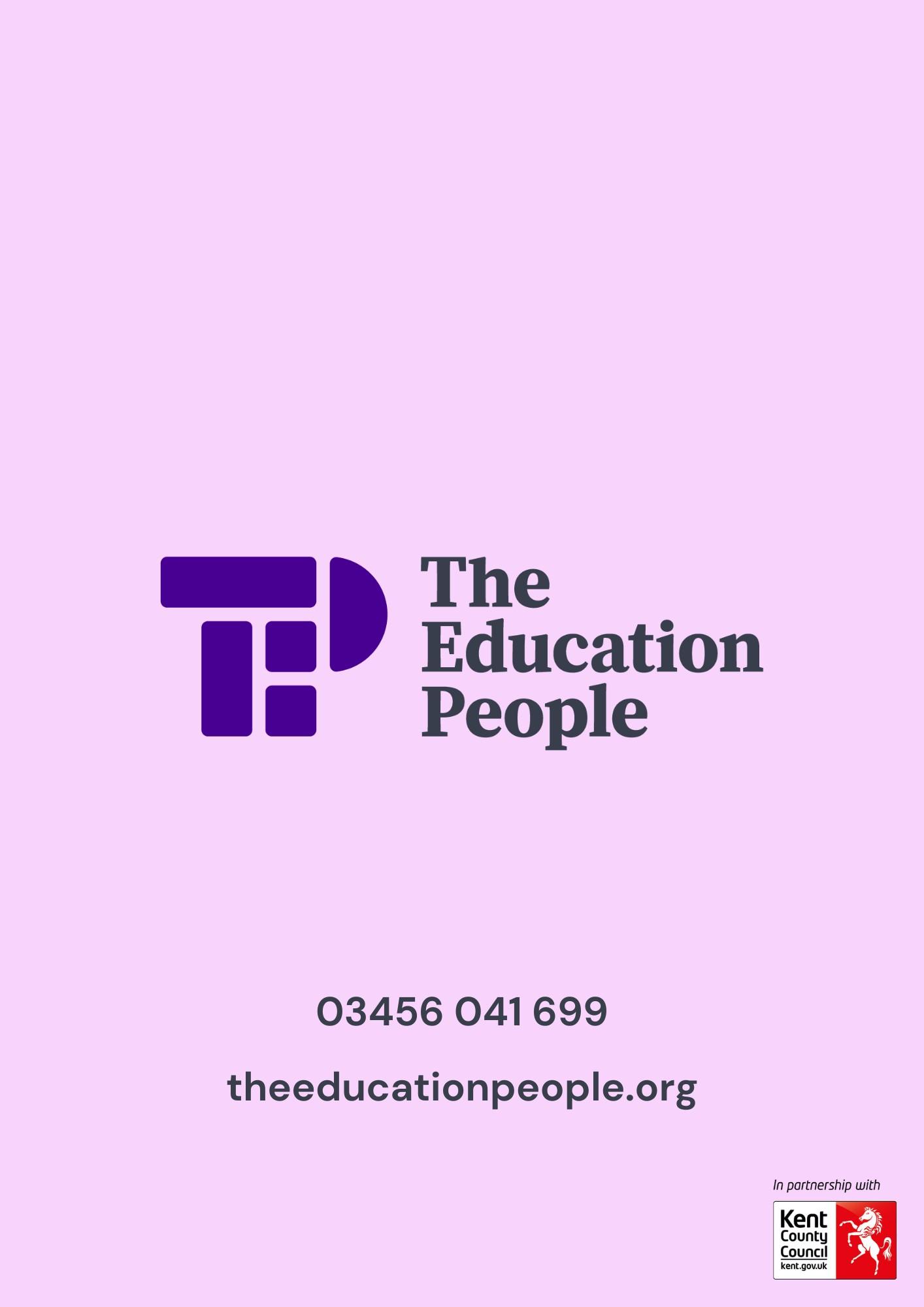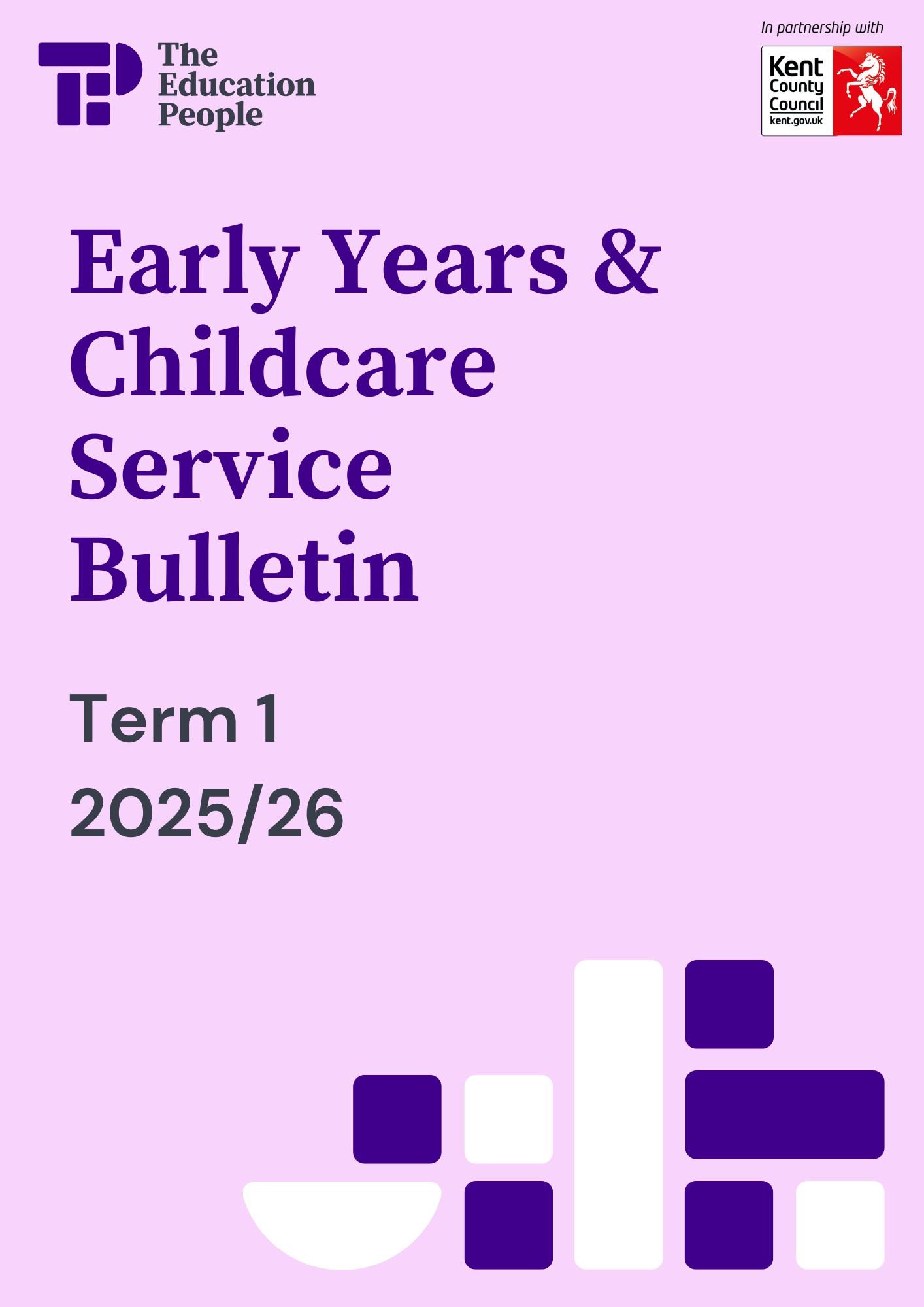
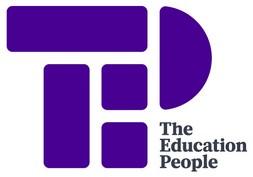




As we are now officially in Autumn, and as I write this the date is 1 October, it feels perhaps a little late for me to be saying ‘welcome back after the Summer’, however I am going to say it anyway! So welcome back after the Summer, I hope that you all managed to have a good break of some kind, whether or not you and your setting is term time only or year round. Whatever though, I am sure that it now feels like a distant memory and already Christmas is on the horizon (just saying…).
Last time I wrote to you I referred to the Department for Education’s (DfE’s) new Statutory Guidance and particularly if you had not been able to attend a June Briefing and Networking Session, invited you to send your responses to these questions:
Acknowledging the challenges of implementing the Statutory Guidance, what things have you been able to do that have helped, either in part or in full?
What questions or concerns do you still have?
It is still an option for you to do this if you wish, not least because we understand that there may be a further updated version of the Statutory Guidance, particularly making amendments in response to the new Ofsted Inspection Framework. We will share further information on this as and when we have it.
Early years group providers should send any responses to sufficiencyandsustainability@theeducationpeople.org and childminders to childminding@theeeducationpeople.org
In the meantime, there will be an update on this at the Briefing and Networking Sessions in the weeks beginning 13 and 27 October. Please see page 19 of this bulletin for details of dates and times.
On the new Ofsted Inspection Framework, due to commence on 10 November, this is, of course, the other ‘big ticket’ issue at the moment. Already shared with you in a bespoke email from us sent on 29 September but included again here should you have somehow missed this, we have been asked to share the following message from Ofsted.
The next Ofsted Big Conversation (OBC) will be held between 10am and midday on 17 October 2025 online. The OBC will provide an opportunity for providers to hear directly from Ofsted colleagues about the revised inspection framework. Please fine the link for this here: Ofsted Big Conversation

More information about this is included further into this bulletin, but for ease of access some headlines are that the evaluation areas for registered early years providers to be inspected are:
safeguarding
inclusion
curriculum and teaching
achievement
behaviour, attitudes and establishing routines
children’s welfare and well-being
Leadership and governance.
Out of school providers will be inspected across the same areas other than for learning and development requirements.
Possible inspection outcomes are across a new, 5 point scale, being:
Exceptional
Strong Standard
Expected Standard
Needs Attention
Urgent Improvement.
Safeguarding will simply be either Met or Not Met.
With my very best wishes to you all through what continues to be a period of change, often bringing with it challenge, and also of our intention to provide whatever information, advice and support we are able.
Yours

Alex Gamby Head of Early Years and Childcare
For anyone who might have missed this, in the last edition of this bulletin I advised that Tracey McCartney (early years groups representative for Sevenoaks) had agreed to be the Chair of the Association on an interim

basis and Abi Aligboro (childminder representative for the North of the County) had agreed to be vice chair. Thanks once again to Tracey and Abi for doing this. We continue to look for an early years groups representative for Maidstone, but in the meantime and other than this, here is an up to date account of the Association’s membership.
The Kent Early Years and Childcare Provider Association last met on 14 July. At this meeting it:
reviewed its Terms of Reference, making a few amendments. The final version will be agreed at the next meeting, following which it will be included in the next edition of this bulletin
discussed the challenges presented by the Government’s new Statutory Guidance
discussed the Provider Association regular slot on the termly Briefing and Networking Sessions and if there are ways in which this could be used more effectively. As a first step, at the up and coming Briefing and Networking Sessions, the slot will be brought forward to be earlier on the agenda.
The next meeting of the Association is on 9 October when it will be signing off the updated Terms of Reference and the main agenda item will be the new Ofsted Framework that comes into effect on 10 November.
Ofsted’s renewed framework
In early September 2025, Ofsted published its renewed Education Inspection Framework, which sets out its inspection principles and the grades that inspectors will give. It will come into effect from November 2025.
New early years report card
Ofsted education inspection framework: childminders
Ofsted education inspection framework: nurseries, pre-schools, other registered early years settings
Charity Commission updated guidance to reflect good practice on recruiting Trustees (CC30)
The Charity Commission is encouraging charities to use the new guidance to:
• help improve their recruitment and induction practices

• focus on the practical steps charities can take to connect with a broader range of candidates
• identify and remove barriers which may put people off applying for the role
• identify the skills you need on your trustee board to take your charity forward by considering a skills audit (your Childcare Sufficiency Officer can supply a template)
• inform new trustees about their legal responsibilities
• welcome, train, and support new trustees.
The refreshed guidance encourages charities to:
• write and keep under review their trustee role description by distinguishing between what is required and what can be learnt in the role
• reach more candidates by posting adverts via social media or using organisations which offer trustee finder services.
The guidance signposts to a range of free resources to help charities reach as many people as possible but is clear that charities can also pay for trustee recruitment services.
The induction section of the Guidance aims to help charities not only recruit successfully to the role but also retain new trustees. It encourages charities to discuss with each new trustee what information and learning they need to become an effective trustee, and how to support them with this by setting out a range of approaches. Your Early Years and Childcare Service Childcare Sufficiency Officer can also supply guidance notes on induction for new trustees.
Recruiting within known circles can contribute to identifying good candidates, but this can limit the field, and difficulties may arise when boards have several personal connections. The Guidance highlights how having a group of trustees with the right mix of technical skills, knowledge of the sector the charity works in, community connections, and first-hand experiences can create well-rounded boards and promote strong governance at charities.
Finding and appointing new trustees (CC30) - GOV.UK
Charity Commission Guidance – Trustee Board: People and Skills
The Guidance regarding finding and appointing trustees sets out the checks you must make before you appoint new trustees. It includes guidance on checking:
• if a person meets the minimum age requirement for trustees

• that a person is not disqualified from being a trustee. Automatic disqualification rules for charity trustees
• if a trustee position requires a relevant DBS check.
You can appoint someone who lives outside the UK as a trustee, including:
• non-British citizens
• people in the UK on temporary visas or seeking asylum
• British citizens who live abroad
• allowed by your charity’s governing document (check for any residential or similar restrictions)
• in your charity’s best interests, so that the benefits of the appointment outweigh any issues or problems.
Find more information in guidance: Trustee Board: People and Skills
The UK Health Security Agency (UKHSA) has received notifications that some early years settings have policies which exclude children post vaccinations. In response to this, the UKHSA has shared the message below from Dr Mary Ramsay, Director of Public Health Programmes at UKHSA:
“Vaccinations are vital for protecting children against serious and potentially life-threatening diseases. With measles outbreaks occurring in areas of the UK and cases of whooping cough being reported, it's more important than ever that children receive their routine immunisations on schedule.
While some children may experience mild side effects after vaccination, there is absolutely no medical reason to exclude a vaccinated child from a setting if they are feeling well. This practice could potentially discourage parents from getting their children vaccinated and therefore increase the risk of having outbreaks in nurseries and schools. All medicines can cause side effects, but global health authorities agree that immunisation is the safest way to protect children's health. If a parent or carer feels their child is well enough to attend nursery or school after vaccination, they should be welcomed as normal. There is no reason to exclude children who have been recently vaccinated as vaccine viruses cannot spread to others.

By supporting childhood vaccination and maintaining inclusive and evidence-led policies, early years and education settings play a crucial role in protecting not just individual children, but entire communities from preventable diseases.”
The UK Health Security Agency has confirmed changes to the routine childhood vaccination schedule, which includes changes to the selective hepatitis B vaccination programme from 1 July and the introduction of a new 18-month routine vaccination appointment.
From 1 January 2026, additional changes bring forward the second MMR dose (MMR2) from 3 years 4 months to 18 months of age.
The changes are required as a result of the discontinuation of the Menitorix (Hib/MenC) vaccine. This has prompted the Joint Committee on Vaccination and Immunisation (JCVI) to recommend other changes to the national childhood immunisation schedule, to optimise the overall protection of children in the UK.
For children born on or after 1 July 2024, the JCVI has agreed that protection against MenC is no longer required in this age group due to the excellent population control provided by vaccination of adolescents. Sustaining coverage of MenACWY in adolescents is important to maintain indirect protection.
Following a recent clinical study and a review of the epidemiology, the JCVI has advised bringing forward the second dose of MenB vaccine to provide earlier protection against this serious infection.
To avoid increasing the number of injections for children attending for their second routine visit at 12 weeks, the first dose of PCV13 will be moved to the 16-week visit. Details of these and other changes are set out in the new routine childhood vaccination schedule.
For more information, please see the links below.
References
Changes to the routine childhood vaccination schedule from 1 July 2025 ...
Childhood schedule changes from 1 July 2025: information for healthcare ...
Changes to the routine childhood schedule letter - GOV.UK

Developmental Language Disorder (DLD) affects approximately 1 in 14 children, yet it remains widely misunderstood. DLD Awareness Day (17th October) is an opportunity to help shine a light on this hidden but impactful condition.
This year’s theme is “You Can’t See DLD”, highlighting how DLD is often invisible but can significantly affect learning, social interaction, and emotional wellbeing.
Early years practitioners play a vital role in spotting the signs of children that are at risk of long term language needs and potential DLD. These may include:
Starting to talk later than siblings or peers
Difficulty following instructions or answering questions
Difficulty remembering what has been said
Difficulty learning new words
Struggling to put words into sentences
Difficulty finding the right words to share ideas
Difficulty paying attention
Difficulty learning to read and write.
Early identification allows for timely support, which can significantly improve outcomes in communication, learning, and social development.
Practical Strategies for Support (as outlined in Prime Importance of Communication & Language e-learning and Targeted Support for Communication & Language training).
Use responsive interactions in daily interactions and in play.
Use extra visual support alongside spoken words such as pointing to an object, using a sign or natural gesture, or pointing to a symbol on a communication board to reinforce words to support understanding and use of language.
Use visual aids such as now/next boards, visual timetables, sand timers to support attention, memory, understanding of language and independence.

Offer choices to support understanding.
Model a range of vocabulary such as action words and concepts as the child experiences it in day to day activities and their play allowing for lots of repetition e.g. ‘splashing’, ‘pouring’, ‘drying’, ‘wet’, ‘empty’, ‘full’.
Sing songs and rhymes to build vocabulary and phonological awareness.
Respond positively to speech errors by modelling correct usage.
NAPLIC offers resources for families and professionals and the DLD Friendly Audit, helping settings become more inclusive.
RADLD (Raising Awareness of DLD) hosts DLD awareness day and shares accessible resources for families and professionals.
Afasic has helpful DLD resources for families and professionals.
Tiny Happy People offers advice and activities for families.
Words for Life has activities to support children of all ages with literacy skills.
Little Talkers groups - six weekly sessions for parents and children, led by trained Family Hub staff. These fun, interactive groups support early communication skills. Parents can book their place via their local Family Hub.
ELIM (Early Language Identification Measure) Package of care –identified at child’s 2-2 ½ year review, this Health Visiting package is delivered by Therapy Assistants 1:1 with families in Family Hubs.
Talking Walk-ins – if a child in your setting is making limited progress with language despite targeted support, or if parents have concerns, signpost them to a Talking Walk-in. These are jointly delivered by Family Hubs and Speech and Language Therapy teams.
By recognising and responding to DLD early, early years workers can make a lasting difference in a child’s life. Help us raise awareness and ensure every child has the support they need to thrive. Early years qualifications list

The Government has recently updated its qualifications list that meet the criteria for counting in the EYFS staff:child ratios to include the level 2 early years practitioner apprenticeship and the early years lead practitioner apprenticeship. Please visit the Government website for more information.
As we move into a time when we will be welcoming many more babies into our care, it is a good opportunity to be aware of some resources to support ongoing safeguarding awareness and signposting for families.
The Kent Safeguarding Children Multi-Agency Partnership website HomeKent Safeguarding Children Multi-Agency Partnership has a whole host of information and resources available. We would encourage you to refresh your knowledge of the wealth of information there for you to access, but in the meantime, here are two examples that are particularly pertinent at this time.
Bruising in Non-Mobile Children Video Explainers - Kent Safeguarding Children Multi-Agency Partnership
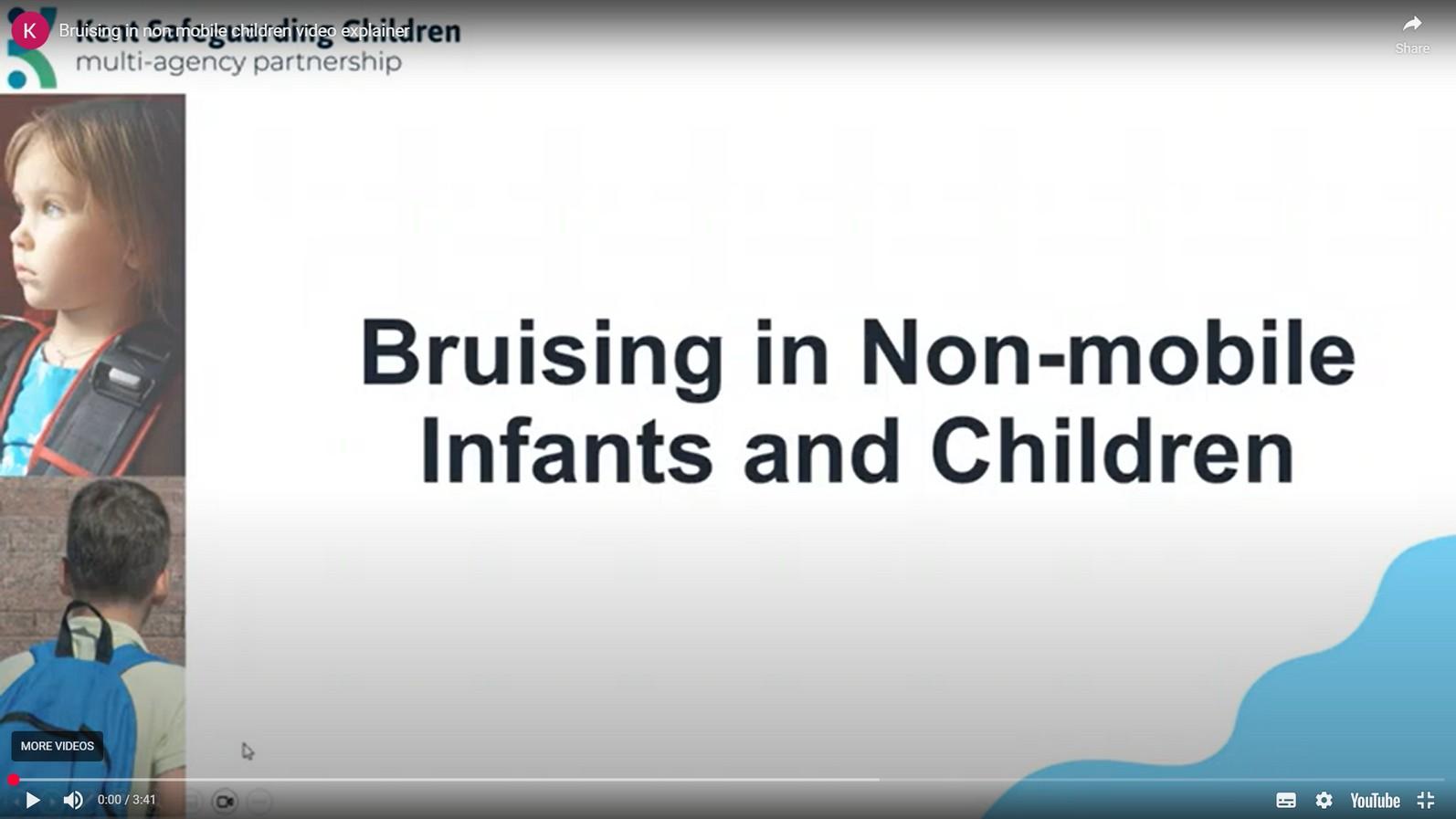
This short video explainer provides valuable information, referring to The Kent and Medway for the Management of Actual or Suspected Bruising in Infants and Children Who Are Not Independently Mobile.
ICON Home - ICON Cope
The signpost to the ICON website leads to finding information specifically about helping people who care for babies to cope with crying – extremely valuable information for practitioners and for sharing with families.

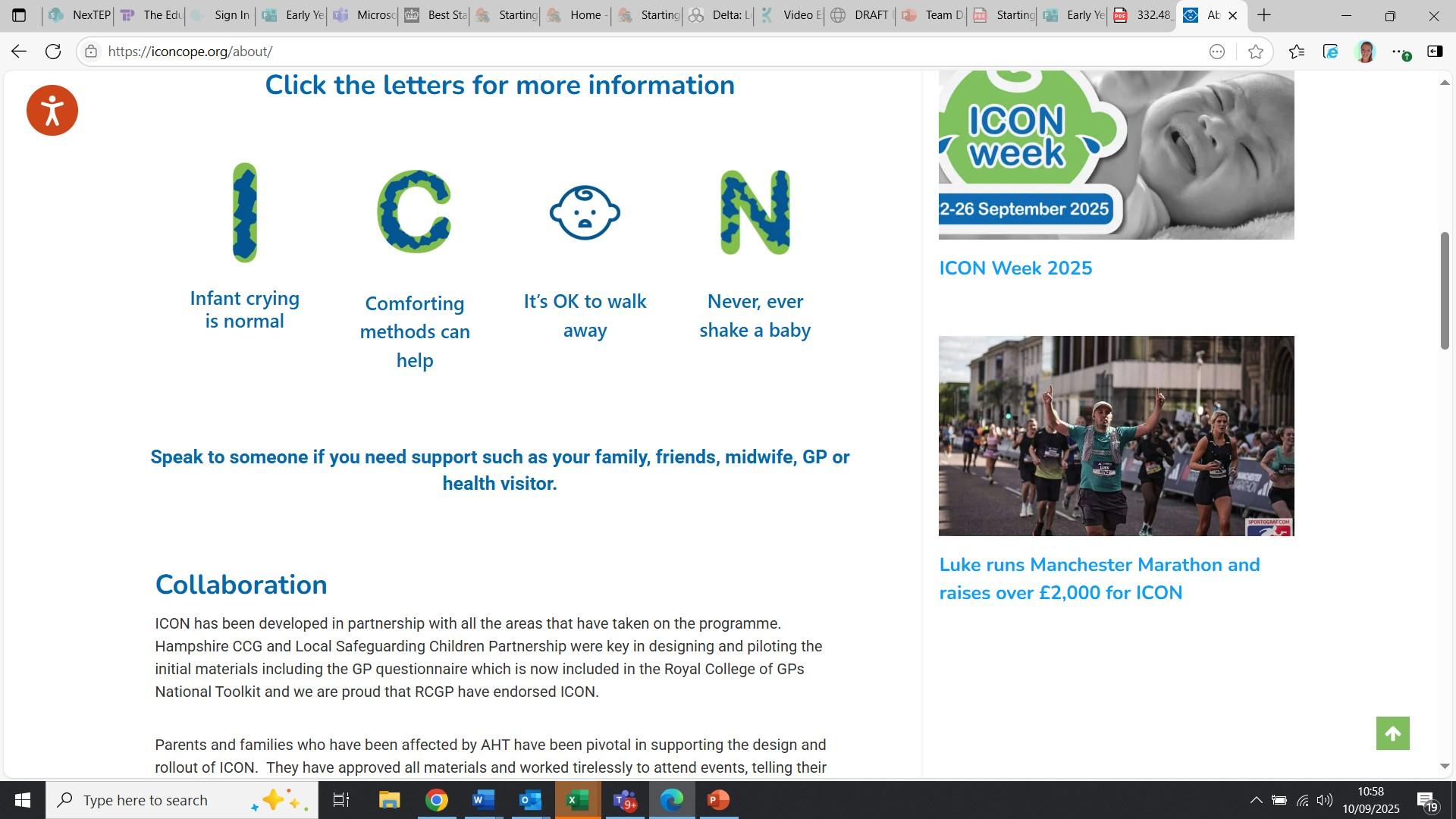
Research suggests that some lose control when a baby’s crying becomes too much. Some go on to shake a baby with devastating consequences. Suzanne found that the most effective evidence-based programmes studied provide a simple message that supports parents/caregivers to cope with infant crying. Apart from preventing AHT, most people who have ever cared for a baby appreciate some advice about how to comfort a crying baby and how to cope when it goes on for a long time.
Following the success of their May education engagement sessions, Kent Safeguarding Children Multi-agency Partnership will be hosting two further sessions in November 2025. The events are designed for and open to any education colleagues across Kent, not just safeguarding leads.
The sessions will include learning from Local Child Safeguarding Practice Reviews relevant to education, updates on the Partnership's work including a new parental cannabis use awareness campaign, information about mental health and wellbeing signposting resources being developed for education and will have an opportunity for questions and answers.
Two events will be held; both will have the same agenda. You can book a place now via the links below:
3 November 2025, 1-2.30pm

13 November 2025, 9.30-11am
Christine McInnes (KCC Director of Education, Children, Young People and Education) has welcomed the Specialist Teaching and Learning Service (STLS) that joined KCC on the 1 September 2025. You can read her welcome in her weekly bulletin, which is for all schools and settings.
All correspondence from the Director of Education will be shared this way so please register to receive these bulletins to keep abreast of any changes and information.
12 September 2025 weekly update - KELSI

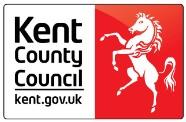


The department of Health and Social Care have some fabulous resources on their webpage which you can order or download. Check out the
‘Top Tips for Teeth’ better health start for life campaign to help promote key messages within your setting.
Better Health Start for Life Top Tips For Teeth | Campaigns | Campaign Resource Centre
Reduce Sugar intake – Limit sugary foods and drinks, think about the time between snacks and especially those consumed frequently or at bedtime.
Promote good oral hygiene – Encourage regular toothbrushing with fluoride toothpaste, starting from when the first tooth erupts
Supervised toothbrushing – Consider implementing a supervised toothbrushing programme in your early years setting.
Regular dental visits – Schedule regular dental check ups for early detection and prevention of decay.
Fluoride application – Fluoride varnishes cand be applied by dental professionals to strengthen enamel.
Educate parents – Provide parents with information about oral hygiene and the importance of healthy eating habits.
With a good understanding on oral health and facts about dental decay and prevention you can play a vital part in protecting the oral health of children
About us: We are the Kent Community Health Foundation Trust Oral Health Team.
We cover 12 districts in Kent and provide evidence based oral health education, advice, information and training in various settings to groups of all ages and abilities.
If you would like to speak to one of the team, please get in touch kentchft.oralhealthkent@nhs.net
Check out our website for more information and advice www.kentcht.nhs.uk/happyteeth
Become an Oral Health Champion!
We will provide you with the current guidelines and useful links to resources to share within your setting.
You will also be sent the link to our free quarterly webinars with CPD. To sign up just send us an email at kentchft.oralhealthkent@nhs.net
We will be holding our next free FREE webinar for you and your colleagues on Tuesday 25th November 2025 @10am – if you are already an Oral Health champion, look out for your invite!

A one-day free, online training session to improve awareness of poor perinatal mental health, its impact on children and families, and the importance of multi-agency responses and referral processes for nonhealth professionals within Kent.
Perinatal mental health problems occur during pregnancy or in the 24 months following the birth of a child and can affect new and expectant parents.
To provide an understanding of poor perinatal mental health, and the skills to identify and describe its potential impacts, the support and mental health services available and the importance of being child focused.
1. Gain an understanding of poor perinatal mental health and its prevalence.
2. Describe the potential impact of poor perinatal mental health on mothers, babies and families.
3. Understand the importance of being child focused when supporting poor perinatal mental health.
4. Gain knowledge of the support available and referral pathways for perinatal mental health services.
5. Appreciate the importance of multi-agency working in addressing perinatal mental health issues.
Book a place
Banners promoting the early years entitlements – order one now!
Over the summer many of you will have received a vinyl banner to promote the early years entitlements at your setting, if you had requested one. We are having more printed so if you have not yet received one but would like a banner sent to your setting, please email eycollaborations@theeducationpeople.org.

We are noticing a trend in recent Ofsted Inspections for childminders to improve the sharing of information with other childcare providers.
The experience of the Early Years & Childcare Service’s Childminding Quality and Sufficiency Advisers from visiting childminders is that the sharing of information with other settings is challenging. When we have explored the current challenges, the difficulty is developing a consistent and meaningful, and GDPR-compliant process that benefits both settings, the child and the parents.
It is important to remember that Ofsted will look for:
• clear evidence of how you work in partnership with others to ensure that children have a consistent learning approach.
• clear evidence that you have respected a child’s privacy and only shared information with parents’ consent.
This way of working demonstrates your commitment to supporting each child in a holistic way across settings.
For this document, we will focus on sharing information with other childminders or nursery settings.
Here are some ideas for you to consider:
• Do I know which other setting/s the children in my care attend.?
How do parents share this information with me?
• Do I share learning and development information with them?
• Is information shared regularly or just at transition points?
• Create a list of children who attend more than one setting.
Before sharing any information about a child with any other provider you should obtain written parental permission to do so.
Develop a consent form as part of your registration process or a separate Information Sharing Agreement Form.

When sharing information with another setting it is advisable to keep the document short and structured. All settings are busy, and the key person will want to see relevant information which will inform their practice and support the individual child. Some key areas of information to share could be:
• Child’s name and date of birth
• Name of key person
• What does a good day at your setting look like for the child. (including key interests and strengths)
• Any areas of concern or a current focus, including next steps
• Strategies you use to support the child
• Milestones achieved because of the strategies
• Share the format with the other setting and agree which information is helpful to share.
It is always beneficial to identify who the primary contact at the other setting will be and agree how you will share updates.
You may wish to consider the following options when considering how to share information about a child in your care:
• Email (password protect documents)
• Printed information or diary contacts books, passports
• Secure messaging app (eg Family, Tapestry)
• Face to Face catch ups/meetings
• Initiate contact with the other provider and agree a mutually convenient communication method and the frequency of the contact.
Whilst Ofsted inspectors will not always wish to scrutinise documents, they will expect you to be able to demonstrate how you share information with other settings that children may attend. We would consider that all settings would want to share developmental progress between themselves to ensure that the child’s needs are holistically met. However, when it is challenging to gain information from other settings your attempts to share will be acknowledged if you can evidence that you have made attempts to communicate.

It is always advisable therefore, to maintain and monitor the correspondence that you share and when. When developing a template you may wish to consider the following information:
• Only share information that is relevant
• Developmental information should align with the EYFS
• Has shared information supported children's learning
• Note improvements in transitions
• Develop a template for sharing information to include date of sharing, name of contact at other setting, actions and next steps.
What do I do if parents won’t share the information about the other provision/setting/childminder their child attends or let me talk to them about their child’s progress?
Parents must sign consent to share their child’s information before you can proceed with sharing. Therefore, if parents refuse consent, then you are not able to share information about their child with others. The only exception would be if you had a safeguarding concern.
In this example you could explain to a parent that as part of your registration to be a childminder you must comply with the EYFS Framework which states (3.92) that childminders must enable a regular two-way flow of information with parents/carers and between other providers if a child is attending more than one setting. You may wish to chat to a parent about this and reassure them and share the positives that sharing information can have for your child.
What do I do if the other setting doesn’t want to engage with me or share information back?
If you have tried several ways and at different times to engage with the other setting and the communication is not reciprocated, you should record this on your information sharing record template. During an inspection this would serve as evidence of your commitment to engage and demonstrating your compliance with the EYFS.
Following on from our email to the Sector earlier this term, you will be aware that the Government has introduced the Best Start in Life strategy over recent months and 1 September saw the launch of the Best Start in Life parent hub. With this launch came the shift of information for families,

on childcare and early education support, from the Childcare Choices website to the new Best Start in Life website. This includes information on the various early years entitlements, breakfast clubs and wraparound childcare, Tax-Free Childcare, Universal Credit Childcare and the childcare support eligibility checker. Existing links to the Childcare Choices website on any current media will now automatically link to the new Best Start in Life parent hub.
Please share this link to the new website with families.
Free, fun activities and resources supporting children’s development
The BBC’s Tiny Happy People has recently become part of CBeebies Parenting. CBeebies is bringing together all its parenting resources in one place to support parents and carers with some of the biggest challenges they face from developing speech and language skills to potty training and preparing for school.

CBeebies Parenting has NEW content to help parents/caregivers across the UK support their pre-schoolers as they prepare for school, whether it’s this year or in coming years.
Check out the skills for starting school and the starting school collections on the CBeebies parenting website for free, expert advice and evidence based activity ideas to help parents/caregivers support their children’s development.
Find help with everything from taking turns and sharing, to introducing the potty and toilet independence, to managing separation anxiety. All activities can help boost children’s language development and new the Hey Duggee films support a range of skills including listening and attention.
Visit the website for more:
- activity ideas
- tips and advice
- child development facts
- key talking tips for any age.

All content is developed and created with health, early years education and speech and language experts.
To find out more about BBC CBeebies Parenting join one of the free monthly Champions Training sessions. This virtual 45min session explains what’s available and how you can use the information with families you work with.
Check out the Professional section as well for key content and resources to print and share.
Sign up for the monthly newsletter for regular updates.
The Early Years and Childcare Briefing and Networking Sessions are an opportunity for early years and childcare providers in the private, voluntary, independent and maintained sectors to receive important national and local information from the Early Years and Childcare Service and other relevant partners and agencies, and also to spend time in discussion with each other.
After feedback we have adjusted the times of the sessions. Please feel free to attend which timing is most convenient for you, rather than by area.
Date Time
Tuesday 14 October 2025 16.00 – 18.00
Wednesday 15 October 2025 14.00 – 16.00
Thursday 16 October 2025 9.00 – 11.00
Wednesday 29 October 2025 (Childminders and Out of school providers) 19.30 – 21.30
Thursday 30 October 2025 11.00 – 13.00
Alex Gamby Head of Early Years & Childcare
Threads of Success
Threads of Success
Alex.gamby@theeducationpeople.org
https://www.theeducationpeople.org/our-expertise/ early-years-childcare/threads-of-success/
https://www.theeducationpeople.org/our-expertise/ early-years-childcare/recruitment-hub/
